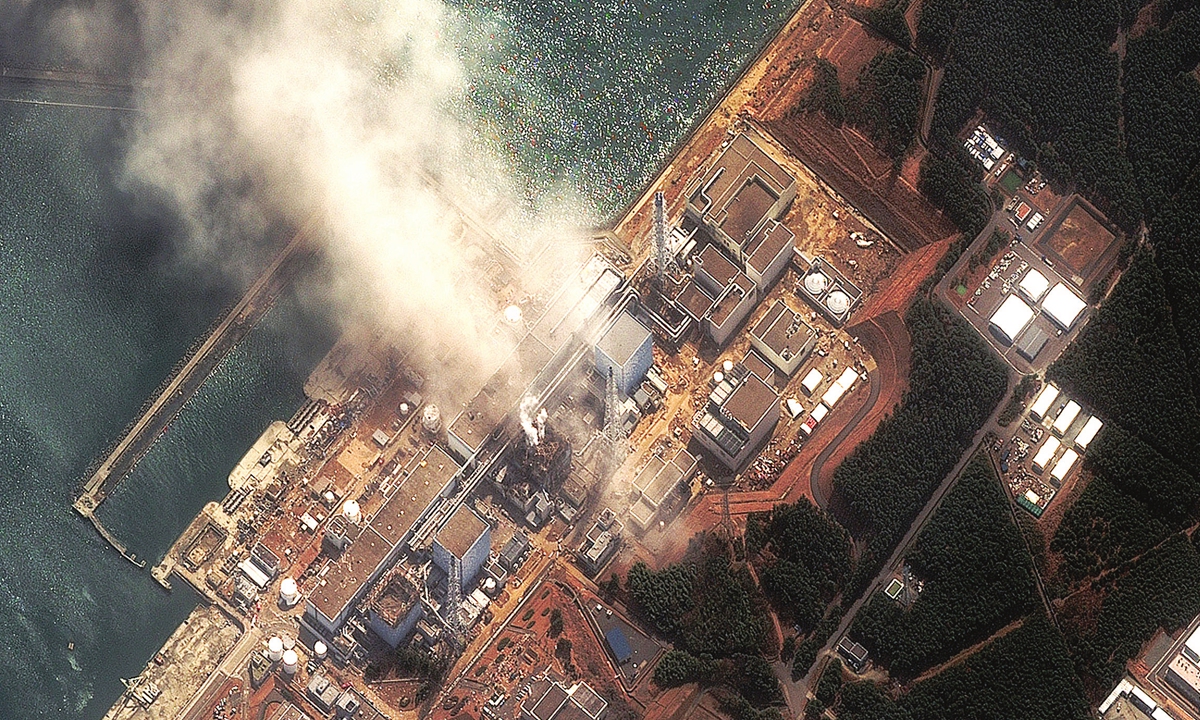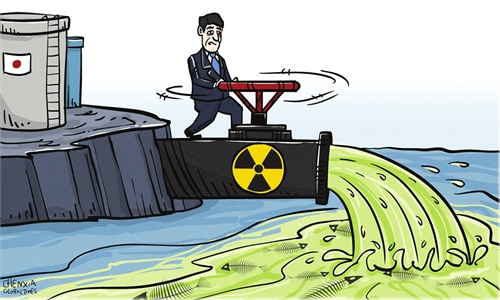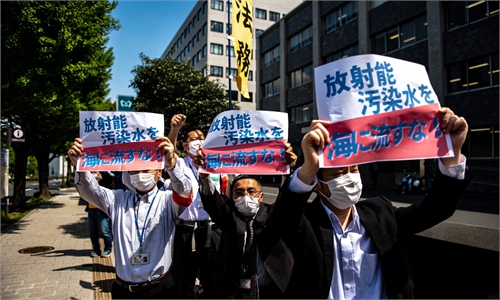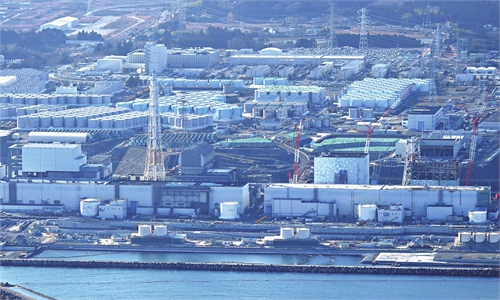Japan’s nuclear contaminated wastewater dump plan a cause of concerns even for New Caledonia

A view of the Fukushima Daiichi Nuclear Power Plant. Photo: VCG
Editor's Note:Japan's plan to dump nuclear-contaminated wastewater into the ocean has been strongly condemned by the international community. Nonetheless, Tokyo is still going its own way and speeding up the plan to make the rest of the world pay for it. What harm will it cause to the Pacific island countries and local residents if the contaminated water is discharged into the Pacific Ocean by Japan? What efforts has the Pacific Islands Forum (PIF) made to stop Japan? Global Times (GT) reporter Wang Wenwen discussed these issues with Johanito Wamytan (Wamytan), the vice-president of the association of friendship between New Caledonia and foreign countries.
This is the fifth piece of the series.
GT: What do you think of Japan's decision to dump nuclear-contaminated wastewater into the Pacific Ocean? If it is carried out, how will it affect Japan's regional and international image?
Wamytan: Twelve years after the Fukushima disaster, the nuclear power plant operator, Tokyo Electric Power Co. (TEPCO), is preparing to dump more than 1 million tons of contaminated water into the Pacific Ocean. The plan has caused concerns among fishermen and angered Japan's neighbors.
Storage was the solution put in place at Fukushima. The affected nuclear power plant produces hundreds of cubic meters of contaminated water each week. To cool the fuel in the affected reactors, TEPCO is forced to inject water permanently. Add to that the rainwater and groundwater that is sitting in the basements of buildings. This water loaded with radioactive isotopes is then pumped to be partially treated and placed in tanks.
According to a TEPCO count in February 2021, 1,061 tanks were piled up at the Fukushima site, containing 1.25 million cubic meters of wastewater. In a document dated April 2020, the IAEA reiterated its position that storage "can only be a temporary measure and a more sustainable solution is needed." Tanks were filled by 2022 and TEPCO needs room for further dismantling.
The accumulation of these open-pit tanks also raises the risk of accidents. It is likely that Japan's decision will have a negative impact on the country's image in terms of nuclear safety and environmental management. The decision can also lead to boycotts or trade restrictions by countries in the region which oppose it.
So far, this decision has been widely criticized by countries in the region, as well as by fishermen and some Japanese. Like them, we in Kanaky-New Caledonia are concerned about the long-term effects of the contamination of the Pacific Ocean on human health and the environment.
GT: What damage will occur to Pacific island countries and local residents if nuclear-contaminated wastewater is discharged into the Pacific Ocean by Japan?
Wamytan: The dumping of contaminated wastewater from the Fukushima nuclear power plant into the Pacific Ocean can have consequences for human health and the environment.
The long-term effects of contamination on human health will depend on the amount of radiation present in the discharged water, as well as the distance and duration of exposure. People in Pacific island countries are particularly vulnerable to these effects, as they often depend on local fisheries and agriculture for their livelihoods.
For the Japanese, those living near the Fukushima nuclear power plant or who were evacuated due to the 2011 nuclear disaster may be particularly concerned about the long-term effects of the release of contaminated water into the Pacific Ocean.
It is important to note that the Japanese authorities have stated that radiation levels will be low enough to avoid any risk to human health. But this has not been enough to reassure many local and international groups that oppose this decision.
Ultimately, it is crucial that Japanese authorities closely monitor radiation levels in the Pacific Ocean and take steps to minimize risks to human health and the environment. It is also important that Pacific Island countries and the Japanese are kept informed of developments and have access to adequate resources and support when needed.

Johanito Wamytan Photo: Courtesy of Wamytan
GT: New Caledonia is a member of the PIF. What efforts has the PIF made to stop Japan and how effective are they?Wamytan: The PIF has publicly expressed concern about Japan's decision to dump contaminated water into the Pacific Ocean, calling on Japan to work closely with Pacific countries to develop an appropriate and environmentally friendly solution to water management. The PIF also requested Japan to provide detailed information on the composition of the contaminated water and on measures taken to minimize risks to human health and the environment.
However, it is important to note that the PIF has no regulatory power over member countries, and its appeals and recommendations are not binding. The final decision rests with Japan. Therefore, the effectiveness of PIF efforts remains difficult to assess. Nevertheless, the PIF continues to play an important role in promoting regional cooperation and environmental protection in the Pacific.
GT: How likely is Japan to change course? Under what circumstances will Japan do so?
Wamytan: Japan explained that this decision is made after considering available options, and after obtaining approval from the country's nuclear regulator. The government has also said that this decision is necessary because the storage space for contaminated water would soon reach saturation.
However, this decision has been criticized by some environmental groups and neighboring countries such as South Korea, which bans the importation of seafood from the Fukushima region. The Japanese government has stated that it will take measures to minimize impacts on the environment and human health.
It is therefore possible that Japan will reconsider its decision to discharge treated water from the Fukushima nuclear power plant into the Pacific Ocean if environmental and health concerns persist or if more viable and less controversial alternatives emerge. However, it is difficult to predict exactly when this would take place.
GT: Many countries, including the US, Japan and France, have developed their Indo-Pacific strategies. What is your concern or fear about this strategy? What is in the interest of Pacific island countries?
Wamytan: What we are currently seeing is a militarization and nuclearization of the Pacific. Pacific island countries need stability so that they can have an environment conducive to their peaceful and sustainable development. It is therefore important that the Pacific island countries be consulted and included in the development of the Indo-Pacific strategy, AUKUS or the Silk Road, so that their concerns and interests are taken into account. In short, we are facing unique challenges and special needs that must be considered by great powers in formulating global strategies toward this part of the world.



